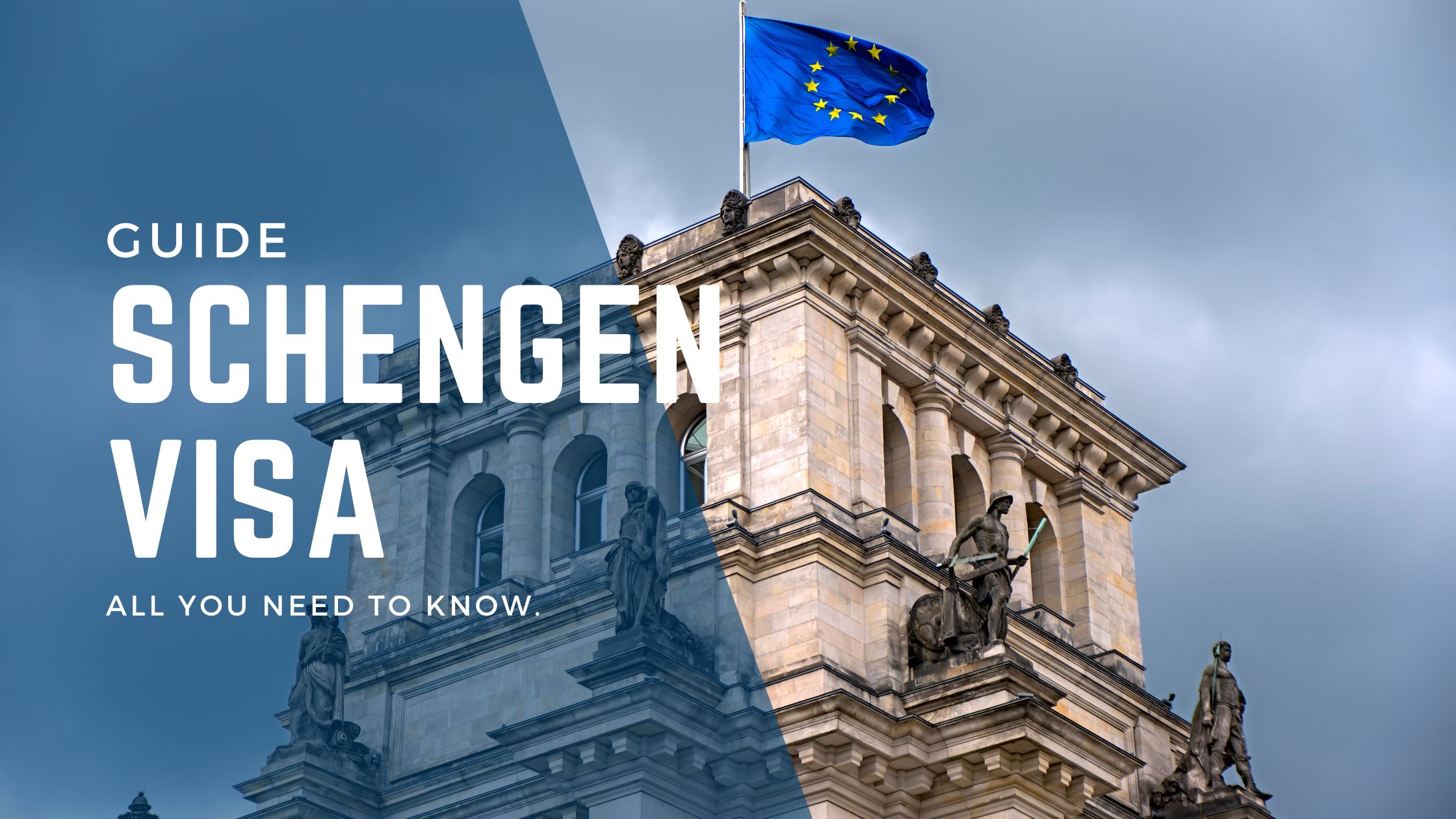Schengen Visa Cost, A Detailed Breakdown of Costs from Dubai: How to Plan Your Budget
Schengen Visa, Are you planning a trip to Europe from Dubai and wondering about the costs of a Schengen visa? Look no further! In this detailed guide, we will break down the Schengen visa costs in Dubai, helping you plan your budget with confidence.
Obtaining a Schengen visa is an essential step for travelers from Dubai who wish to explore the wonders of Europe. However, understanding the various costs associated with this visa can be overwhelming. That’s why we’ve compiled all the necessary information for you.
From visa application fees to travel insurance and other additional expenses, we will provide a comprehensive breakdown of the costs involved. Whether you’re traveling for leisure or business, knowing the exact amount you need to set aside will enable you to plan your trip efficiently.
By having a clear understanding of the Schengen visa costs, you can avoid any last-minute surprises and make the most of your European adventure. Join us as we guide you through the intricacies of planning your budget for a Schengen visa from Dubai.

Understanding the Schengen Visa Costs
When planning your trip to Europe, it’s crucial to understand the costs associated with acquiring a Schengen visa. This visa allows you to travel freely within the Schengen Area, comprising 26 European countries. Let’s delve into the different aspects of Schengen visa costs to give you a better idea of what to expect.
Schengen Visa Application Fees
The first and most apparent cost associated with obtaining a Schengen visa is the application fee. The fee varies depending on the type of visa you’re applying for, such as a tourist visa, business visa, or student visa. It’s important to note that the fees are non-refundable, regardless of whether your visa is approved or rejected. We can help Call us
The current Schengen visa application fee for adults is €80 (approximately AED 346) for most countries. However, for children aged 6 to 12, the fee is reduced to €40 (approximately AED 173). Children under the age of 6 are exempt from paying any visa fees. Keep in mind that these fees are subject to change, so it’s always a good idea to check the latest information before applying.
Additional Costs Involved in the Schengen Visa Application Process
Apart from the visa application fee, there are other costs to consider during the application process. These include biometric data collection fees, courier fees, and any charges associated with supporting documents.
Biometric data collection involves providing your fingerprints and a digital photograph at the visa application center. The fee for biometric data collection is €5 (approximately AED 22). In some cases, you may also need to pay for the courier service to have your passport and visa delivered to your doorstep. These charges can range from €10 to €30 (approximately AED 43 to AED 130), depending on the service provider.
Additionally, you may incur costs related to obtaining supporting documents, such as travel insurance, flight itineraries, hotel reservations, and proof of financial means. While these expenses are not directly part of the visa application, they are essential for demonstrating your purpose of visit and your ability to finance your trip.
Factors That Affect the Schengen Visa Costs
Several factors can influence the overall cost of obtaining a Schengen visa. These factors include the duration of stay, the number of entries required, and the country you’re applying from. Let’s take a closer look at how these factors can affect your visa costs.
The duration of stay refers to the number of days you plan to spend within the Schengen Area. The standard Schengen visa allows for a maximum stay of 90 days within a 180-day period. However, if you require a longer stay, you may need to apply for a national visa, which may have different fees and requirements.
The number of entries refers to how many times you can enter the Schengen Area during the validity of your visa. A single-entry visa allows for one entry, while a multiple-entry visa allows for multiple entries within a specific period. Multiple-entry visas are generally more expensive than single-entry visas.
The country you’re applying from can also impact the visa costs. Some countries may charge higher fees or have additional requirements compared to others. It’s essential to check the specific requirements and fees for the country where you plan to submit your application.
Schengen Visa application fees
As of my last knowledge update in January 2022, the Schengen Visa application fees for Dubai or the United Arab Emirates (UAE) may vary depending on the type of visa you are applying for and your nationality. It’s important to note that fees and requirements for visas can change over time, so it’s always a good idea to check the official website of the relevant Schengen country’s embassy or consulate for the most up-to-date information.
In general, the Schengen Visa application fees for Dubai residents were as follows:
- Short-stay Schengen Visa (Type C visa):
- Adults: Approximately EUR 80
- Children aged 6-12: Approximately EUR 40
- Children under 6: Usually free
- Long-stay Schengen Visa (Type D visa):
The fees for long-stay visas can vary significantly depending on the country you are applying to and the specific circumstances of your application. It is advisable to check with the embassy or consulate of the Schengen country you plan to visit for accurate information.
Please keep in mind that these fees are subject to change, and the requirements for visa applications can vary from one Schengen country to another. Always double-check the latest information on the official website of the embassy or consulate of the specific Schengen country you intend to visit or apply for a visa from. Additionally, the currency conversion rate may also affect the exact amount you need to pay in local currency (AED) when applying in Dubai.
Tips for budgeting your Schengen visa expenses.

Budgeting for a Schengen Visa trip from Dubai is crucial to ensure you have enough funds to cover your travel and stay in the Schengen Area. Here are some tips to help you budget effectively:
- Determine Your Travel Dates: First, decide on your travel dates as they can significantly impact your budget. Traveling during the peak season (summer) can be more expensive than during the off-peak season.
- Research Schengen Countries: The Schengen Area consists of 26 countries, each with its own costs and attractions. Research the countries you plan to visit to get an idea of their cost of living, accommodation, and activities.
- Estimate Accommodation Costs: Look for accommodation options such as hotels, hostels, or vacation rentals in the cities you’ll be visiting. Booking in advance can often help you secure better rates.
- Plan Your Itinerary: Create a detailed itinerary, including transportation between cities and attractions you want to visit. This will help you estimate the cost of transportation and entrance fees.
- Calculate Visa Application Costs: Factor in the Schengen Visa application fees, which can vary depending on your nationality and the type of visa you need (short-stay or long-stay).
- Set Aside Emergency Funds: Always have a buffer of emergency funds in case unexpected expenses arise during your trip.
- Currency Exchange: Consider currency exchange rates when budgeting. Be aware of any fees associated with currency conversion or ATM withdrawals abroad.
- Travel Insurance: Don’t forget to include the cost of travel insurance in your budget. It’s essential to have coverage for unexpected medical expenses, trip cancellations, and other emergencies.
- Food and Dining: Allocate a budget for meals. You can save money by dining at local restaurants or preparing some of your meals if you have access to a kitchen.
- Entertainment and Activities: Budget for entertainment, sightseeing, and activities. Look for free or low-cost attractions and consider using city cards for discounts.
- Transportation: Include costs for flights to and from Dubai, as well as transportation within the Schengen Area (trains, buses, flights, and local transport). Booking tickets in advance can help you save money.
- Miscellaneous Expenses: Account for miscellaneous expenses like SIM cards, souvenirs, and personal items you may need during your trip.
- Monitor Exchange Rates: Keep an eye on currency exchange rates, and exchange your money when the rates are favorable.
- Track Your Expenses: During your trip, keep track of your expenses using a travel budget app or a simple notebook. This will help you stay on top of your spending and make adjustments if necessary.
- Be Flexible: Be prepared to adjust your budget if unexpected expenses or opportunities arise during your trip.
Remember that everyone’s travel style and preferences are different, so adapt these tips to suit your specific needs and preferences. Planning and budgeting in advance can help you enjoy your Schengen Visa trip from Dubai without financial stress.
Exploring cost-saving options for accommodation, transportation, and activities.
Exploring cost-saving options for accommodation, transportation, and activities can significantly help you stick to your budget while traveling in the Schengen Area. Here are some strategies for each category:
Accommodation:
- Hostels: Hostels are usually more budget-friendly than hotels and offer a social atmosphere. Look for well-reviewed hostels in central locations.
- Vacation Rentals: Consider using platforms like Airbnb or Booking.com to find affordable apartments or rooms in residential areas. You can also cook your meals in rental apartments, saving on dining expenses.
- Guesthouses: Guesthouses and family-run accommodations can be more affordable and offer a local experience.
- Couchsurfing: If you’re open to the idea, you can use Couchsurfing to stay with local hosts for free. It’s also an excellent way to connect with locals.
- Camping: If you’re visiting during the warmer months and enjoy camping, consider camping in designated areas or campgrounds.
Transportation:
- Advance Booking: Book your flights, train tickets, or long-distance buses well in advance to secure lower prices.
- Discount Cards and Passes: Look for rail passes, city cards, or transportation cards that offer discounts on public transport or multiple attractions.
- Public Transport: Use public transportation instead of taxis or private transfers. Many cities offer unlimited travel cards for tourists.
- Walk and Bike: Explore cities on foot or rent a bicycle to save on transportation costs within the city center.
- Ridesharing: Consider using ridesharing apps like Uber or local equivalents for cost-effective transportation, especially if you’re traveling with a group.
Activities and Sightseeing:

- Free Attractions: Research and prioritize free or low-cost attractions, museums, and parks in each city you visit.
- City Passes: Check if the city offers a tourist pass that grants you access to multiple attractions at a discounted price.
- Guided Tours: Some cities offer free walking tours, where you tip the guide at the end based on your satisfaction.
- Picnics: Enjoy a budget-friendly meal by buying food from local markets and having a picnic in parks or scenic spots.
- Discounts: Look for discounts for students, seniors, or youth. Museums and attractions often offer reduced rates for specific age groups.
- Travel in Shoulder Seasons: Consider traveling during the shoulder seasons (spring or fall) when tourist crowds are thinner, and prices may be lower.
- Local Cuisine: Explore local cuisine at small, local eateries rather than expensive restaurants.
- DIY Excursions: Plan your excursions independently instead of booking costly guided tours. You can often save money by researching and organizing trips yourself.
- Online Deals: Search for online deals, discounts, and promotions for activities and attractions in advance.
- Hiking and Nature: If you enjoy outdoor activities, take advantage of hiking trails and natural attractions, which are often free or low-cost.
Remember to prioritize your must-see attractions and allocate your budget accordingly. A combination of careful planning, flexibility, and willingness to explore affordable options will help you make the most of your Schengen Visa trip while staying within your budget.

